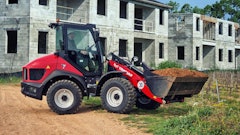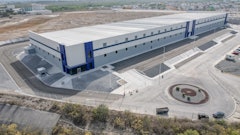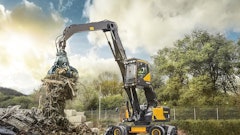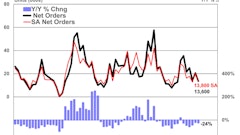If you're like me, you can remember a time when you could pull up to a gas pump and pay about a buck a gallon to fill up your car or truck. These prices aren't likely to return anytime soon. Fuel costs have risen steadily over the years, and especially in the past several weeks. Both gas and diesel prices are nearing the dreaded $3/gal. mark in some metropolitan areas.
The reasons behind the cost increase are numerous: continued unrest in the Middle East; strong increases in global demand, particularly in China and India; insufficient development of new oil supplies; lack of refinery capacity; natural disasters, etc. While major oil companies are anticipating higher investment in oil field development, this will have little effect on oil supplies over the next year.
Long term, prices for off-road diesel fuel will be further impacted by the Tier IV engine emissions standard. Under Tier IV, oil companies are required to reduce the sulfur content of off-road diesel to 500 ppm by mid-2007, and ultimately to 15 ppm by 2010. Refineries will have to invest in additional technology to meet these requirements. As such, the Environmental Protection Agency estimates an added cost of $.07/gal. for this ultra-low sulfur fuel. The actual cost could be higher, but may be offset somewhat by lower maintenance costs.
Ultimately, it appears that higher fuel costs are a reality for the foreseeable future. Yet, you can keep them from shrinking your profits by making fuel cost management a part of your overall business strategy.
The first step is to get a clear picture of the average fuel consumption for the equipment in your fleet. This means keeping records on your machines. If you don't currently track fuel consumption, talk to your local dealer or equipment manufacturer to get a baseline rate.
As you develop a history of fuel costs, adjust your equipment rates accordingly to ensure you're recouping fuel expenses in your project bids. If you use fixed pricing for certain types of work, make sure you build in a sufficient annual cost increase to cover any potential rise in fuel costs during the year.
Next, analyze equipment fuel consumption to identify any "gas guzzlers" in the fleet. In most cases, this will be older units with less--efficient engines. Consider replacing these models with newer units featuring fuel--efficient technology. If buying new is not an option, compare rental rates for newer models vs. the operating costs for the older equipment.
Poor maintenance is a major contributor to excessive fuel consumption. Follow manufacturer recommendations for preventive maintenance to ensure equipment continues to operate at peak levels. Adjust service intervals as needed based on operating conditions.
Also take a look at how equipment is being operated. Improper operating practices increase fuel usage, as well as wear and tear on the machines. This in turn causes them to work harder and consume even more fuel. Make sure operators are properly trained and are using best practices in the field.
With fuel prices continuing to rise as we enter the summer months, it pays to plan ahead to reduce their effects on your business. Every penny you save at the pump is another penny in your pocket.



























